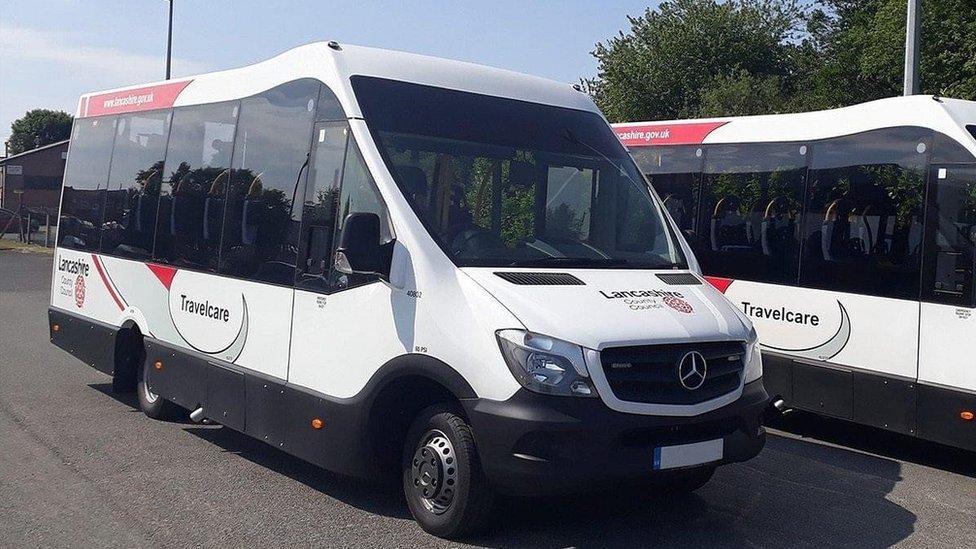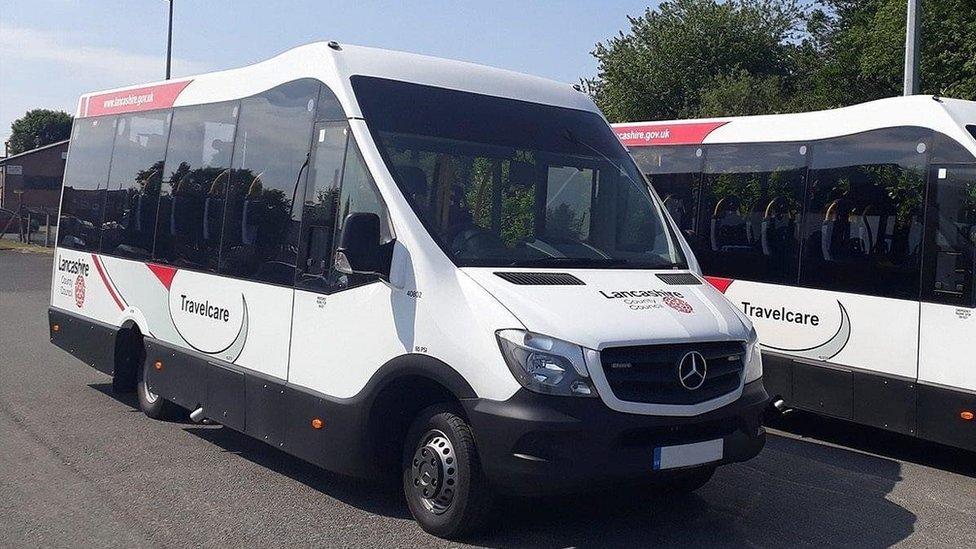Lancashire: Council's special needs transport costs go up £8m
- Published

Lancashire County Council has expanded its fleet of minibuses
School transport for children with special educational needs and disabilities looks set to cost a council a £8.4m more than planned.
Lancashire County Council's predicted overspend for 2023/24 has spiralled almost £2.5m since it was last estimated two months ago.
It has invested in about 50 new minibuses to expand its large fleet.
A councillor said the move will cut "eye-watering" private-hire vehicles costs.
A meeting of County Hall's scrutiny management board heard an increase in children with special needs entitled to home-to-school transport as part of their education, health and care plans (EHCPs) was behind the rise.
Statutory guidance of an ideal maximum daily travelling time for a child of 45 minutes each way for primary pupils and 75 minutes for secondary school children, external, has also had an impact.
County councillor Mike Goulthorp, lead member for finance and resources, said he expected the new vehicles would ease pressure on the authority's budget "quite considerably".
"These are… eye-watering costs in many instances in terms of [private] hire transport.
"We have already taken steps to reduce our need [for] what I would call taxis," he explained.
'First priority'
Mr Goulthorp added ongoing efforts to create special educational needs and disabilities (SEND) units within mainstream schools across the county would also help bring down the bill.
"It is complex [and] there are two issues - where the kids are actually going to be taught [and] looked after and… how we get them [there] in a safe and efficient manner.
"But the first priority is the children," he said.
Oliver Starkey, the county council's head of service for public and integrated transport, said the new minibuses will be smaller than the existing in-house fleet, which will make driver recruitment easier - as no additional qualifications are required to take charge of them.
He also added fewer passenger assistants would be needed to carry the same number of children.
The committee was told an underspend within the highways service as a result of greater than expected income from utility companies and housing developers was helping to offset some of the burgeoning SEND transport costs.
When committee member Rob Bailey said it amounted to the highways budget "subsidising" special needs transport demand, director of finance Neil Kissock said the budget for road resurfacing was part of the capital programme.
The underspend had occurred as part of the county council's day-to-day spending, he said.

Listen to the best of BBC Radio Lancashire on Sounds and follow BBC Lancashire on Facebook, external, X, external and Instagram, external? You can also send story ideas to northwest.newsonline@bbc.co.uk, external
Related topics
- Published15 April 2024

- Published25 March 2024
